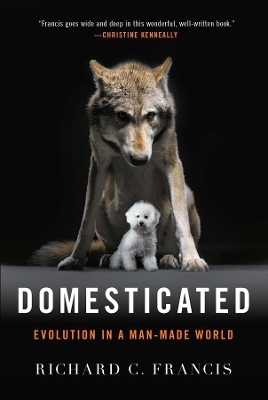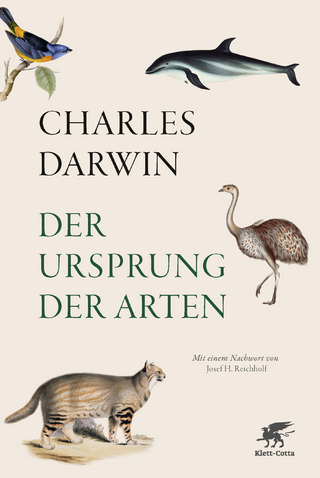
Domesticated
Evolution in a Man-Made World
Seiten
2016
WW Norton & Co (Verlag)
978-0-393-35303-7 (ISBN)
WW Norton & Co (Verlag)
978-0-393-35303-7 (ISBN)
- Lieferbar (Termin unbekannt)
- Versandkostenfrei innerhalb Deutschlands
- Auch auf Rechnung
- Verfügbarkeit in der Filiale vor Ort prüfen
- Artikel merken
The amazing story of how certain ancient animals chose to live near humans, thus sealing their evolutionary fate.
The wolf evolved into the Pekingese, the wildcat into the tabby cat and the auroch into the milk-producing cow. This happened through the process called "domestication". Domesticated creatures have served us well— without them, civilisation as we know it would not exist.
Richard C. Francis weaves history, archaeology and anthropology, while seamlessly integrating the most cutting-edge ideas in twenty-first-century biology, to create a fascinating narrative. Each domesticated species is a case study in evolution, and two key themes emerge: that domestication often results in the retention of juvenile traits and that evolution remains fundamentally a conservative process. Francis also explores the ways in which these themes apply to human evolution.
The wolf evolved into the Pekingese, the wildcat into the tabby cat and the auroch into the milk-producing cow. This happened through the process called "domestication". Domesticated creatures have served us well— without them, civilisation as we know it would not exist.
Richard C. Francis weaves history, archaeology and anthropology, while seamlessly integrating the most cutting-edge ideas in twenty-first-century biology, to create a fascinating narrative. Each domesticated species is a case study in evolution, and two key themes emerge: that domestication often results in the retention of juvenile traits and that evolution remains fundamentally a conservative process. Francis also explores the ways in which these themes apply to human evolution.
Richard C. Francis is a science journalist with a PhD in neurobiology from Stony Brook University. He is the author of the acclaimed books Domesticated, Epigenetics, and Why Men Won’t Ask for Directions.
| Erscheinungsdatum | 25.07.2016 |
|---|---|
| Zusatzinfo | 100 illustrations |
| Verlagsort | New York |
| Sprache | englisch |
| Maße | 142 x 211 mm |
| Gewicht | 503 g |
| Themenwelt | Sachbuch/Ratgeber ► Natur / Technik |
| Naturwissenschaften ► Biologie ► Evolution | |
| Naturwissenschaften ► Biologie ► Zoologie | |
| Sozialwissenschaften ► Soziologie | |
| Weitere Fachgebiete ► Land- / Forstwirtschaft / Fischerei | |
| ISBN-10 | 0-393-35303-6 / 0393353036 |
| ISBN-13 | 978-0-393-35303-7 / 9780393353037 |
| Zustand | Neuware |
| Haben Sie eine Frage zum Produkt? |
Mehr entdecken
aus dem Bereich
aus dem Bereich
Komplette Neuübersetzung. Mit einem Nachwort von Josef H. Reichholf.
Buch | Hardcover (2018)
Klett-Cotta (Verlag)
48,00 €
Wie die Vernichtung der Arten unser Überleben bedroht - Der …
Buch | Softcover (2023)
Penguin (Verlag)
15,00 €


